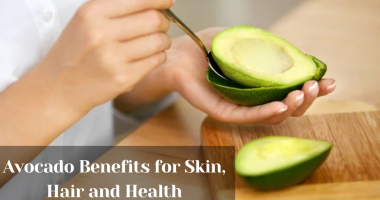In today’s fast-paced world, the quest to eat your way longevity often leads us to complex supplements and expensive treatments. However, Dr. Michael Greger, a renowned physician and best-selling author, argues that the secret to a longer life may be as simple as choosing the right foods at your next meal. His book, How Not to Age, presents compelling evidence that dietary choices can significantly impact the aging process. With over 13,000 citations backing his claims, Dr. Greger provides a roadmap to healthier living through nutrition. In this article, we will explore the science behind food and aging, practical dietary recommendations, and insights from Dr. Greger’s extensive research.
The Science of Aging: Understanding the Role of Diet

Aging Mechanisms
Aging is a complex biological process influenced by various factors, including genetics, environment, and lifestyle. Key mechanisms involved in aging include:
- Oxidative Stress: This occurs when there is an imbalance between free radicals and antioxidants in the body. Free radicals can damage cells, leading to aging and chronic diseases.
- Inflammation: Chronic low-level inflammation is linked to many age-related diseases, including heart disease and Alzheimer’s. Diets high in processed foods can exacerbate inflammation.
- Cellular Senescence: As cells age, they can enter a state of senescence, where they no longer divide but can still release harmful substances that affect neighboring cells.
Dietary Impact
Research shows that specific foods can mitigate these aging mechanisms. A study published by the National Institutes of Health (NIH) found that diets rich in antioxidants can significantly reduce oxidative stress, thereby slowing the aging process. Antioxidants found in fruits and vegetables, such as vitamins C and E, combat oxidative damage and promote cellular health.
Furthermore, a study in Nature Reviews Immunology highlights the role of anti-inflammatory foods in reducing chronic inflammation. Foods rich in omega-3 fatty acids, such as fatty fish and flaxseeds, can lower inflammation levels in the body, contributing to healthier aging.
Dr. Greger’s Anti-Aging Eight: Foods for Longevity
Dr. Greger emphasizes the importance of a plant-based diet for promoting longevity. His “Anti-Aging Eight” consists of eight essential foods that can help slow down the aging process:
Leafy Greens
Leafy greens, such as spinach, kale, and Swiss chard, are packed with vitamins, minerals, and antioxidants. They are particularly high in vitamin K, which has been linked to improved cognitive function and reduced risk of heart disease.
Berries
Berries, including blueberries, strawberries, and raspberries, are rich in antioxidants known as flavonoids. Research published in ScienceDirect indicates that regular consumption of berries can improve brain health and reduce the risk of cognitive decline.
Nuts and Seeds
Nuts and seeds are excellent sources of healthy fats, protein, and fiber. A study in the New England Journal of Medicine found that regular nut consumption is associated with a lower risk of mortality, particularly from heart disease.
Whole Grains
Whole grains, such as brown rice, quinoa, and oats, provide essential nutrients and fiber that support digestive health. They are also linked to a reduced risk of chronic diseases, including type 2 diabetes and cardiovascular disease.
Legumes
Legumes, including beans, lentils, and chickpeas, are high in protein and fiber while being low in fat. A study published in Circulation found that higher legume consumption is associated with a lower risk of heart disease and improved overall health.
Cruciferous Vegetables
Cruciferous vegetables, such as broccoli, cauliflower, and Brussels sprouts, contain compounds that may have cancer-fighting properties. Research indicates that these vegetables can help detoxify the body and reduce inflammation.
Mushrooms
Mushrooms are low in calories and high in nutrients, including B vitamins and selenium. Certain varieties, like shiitake and maitake, have immune-boosting properties that can enhance overall health.
Spices like Turmeric
Turmeric contains curcumin, a powerful anti-inflammatory compound. Studies have shown that curcumin can help reduce inflammation and may even lower the risk of age-related diseases, such as Alzheimer‘s.
Practical Tips for Incorporating Longevity Foods
Meal Planning
Incorporating these longevity-promoting foods into your diet doesn’t have to be overwhelming. Here are some practical tips for meal planning:
- Start with a Plant-Based Foundation: Aim to fill half your plate with fruits and vegetables at each meal. This ensures you get a variety of nutrients while keeping calories in check.
- Experiment with Whole Grains: Substitute refined grains with whole grains in your meals. For example, choose brown rice instead of white rice or whole-grain bread instead of white bread.
- Snack Smart: Replace processed snacks with nuts, seeds, or fresh fruit. These options are nutrient-dense and can help curb hunger.
- Cook with Spices: Use spices like turmeric and ginger to enhance flavor and add health benefits to your dishes.
Mindful Eating
Mindful eating practices can enhance digestion and nutrient absorption. Here are some strategies to consider:
- Slow Down: Take your time while eating. Chewing thoroughly and savoring each bite can improve digestion and help you recognize when you are full.
- Listen to Your Body: Pay attention to hunger and fullness cues. Eating when you’re hungry and stopping when you’re satisfied can help prevent overeating.
The Role of Lifestyle in Aging
While diet plays a crucial role in promoting longevity, a holistic approach that includes other lifestyle factors is essential.
Exercise and Movement
Regular physical activity is vital for maintaining health as we age. The Centers for Disease Control and Prevention (CDC) recommends at least 150 minutes of moderate-intensity aerobic activity per week, along with muscle-strengthening activities on two or more days. Exercise helps:
- Improve cardiovascular health
- Maintain a healthy weight
- Enhance mood and mental health
- Increase longevity
Stress Management
Chronic stress can accelerate the aging process, leading to various health issues. Incorporating stress-reduction techniques into your daily routine can have profound effects on your overall well-being. Consider practices such as:
- Meditation: Mindfulness meditation has been shown to reduce stress and improve emotional health.
- Yoga: Yoga combines physical activity with mindfulness, promoting relaxation and flexibility.
- Deep Breathing: Simple deep-breathing exercises can help calm the mind and reduce anxiety.
Dr. Greger’s Inspiration and Future Projects
Motivation Behind How Not to Age
Dr. Greger’s journey to writing How Not to Age was fueled by his desire to empower individuals with knowledge about nutrition and health. He faced challenges in compiling the extensive research needed to support his claims, but his dedication to promoting a plant-based lifestyle remained steadfast. Dr. Greger believes that everyone deserves access to reliable information that can help them make informed choices about their health.
Upcoming Projects
Dr. Greger is continuously working on new projects aimed at further educating the public on nutrition. While specific details about his next major project remain under wraps, he has hinted at exploring the intersection of food, health, and sustainability. His commitment to research and advocacy ensures that he will continue to be a leading voice in the field of nutrition.
FAQs About Longevity and Nutrition
Q. What are the best foods to eat for longevity?
A. Foods rich in antioxidants, fiber, and healthy fats, such as fruits, vegetables, nuts, and whole grains, are essential for promoting longevity.
Q. Can diet alone significantly impact aging?
A. While diet plays a crucial role, a holistic approach that includes exercise, stress management, and adequate sleep is vital for optimal health.
Q. Is it too late to start making dietary changes for better health?
A. No, it’s never too late to adopt healthier eating habits; even small changes can lead to significant health benefits.
Q. How can I start incorporating these foods into my diet?
A. Begin by gradually adding more fruits and vegetables to your meals, choosing whole grains over refined grains, and incorporating legumes and nuts as snacks.
Conclusion
Dr. Michael Greger’s How Not to Age serves as a comprehensive guide for anyone looking to enhance their health and longevity through simple dietary choices. By understanding the profound impact of food on aging, individuals can take actionable steps toward a healthier, longer life. As we embrace these insights, we unlock the potential to not only add years to our lives but also life to our years. Making informed dietary choices today can pave the way for a healthier tomorrow.
Also Read | 9 Healthiest Morning Habits Straight From a Longevity Expert










